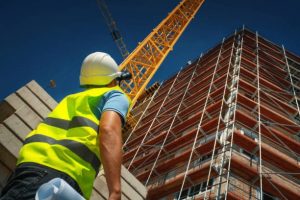There are many different types of pest and building inspections that you can perform. Building inspections are more comprehensive than pest inspections. They check for many different things, including:
Termite inspections
If you’re having a building and pest inspection, you should request a termite inspection. A termite inspection involves looking for mud tubes and signs of damage in wood structures. A termite inspection also involves checking your yard for signs of termite activity. While waiting for your inspection, you may want to repair leaky faucets and keep water from pooling around the foundation. If possible, grade soil around your home to keep water away from your foundation.
 A termite inspection will cover the interior and exterior of your home and include inspection of walls, baseboards, attic, basement, and crawl spaces. They’ll also check doors and window frames. Your termite inspector will also check underneath floors, cabinets, and appliances. If there’s evidence of termite activity, your inspector will recommend further treatment. Although a termite inspection is important for a building and pest inspection, it can’t guarantee the absence of wood-destroying pests. Termite inspectors will check every room in the structure, including the attic, basement, and substructure.
A termite inspection will cover the interior and exterior of your home and include inspection of walls, baseboards, attic, basement, and crawl spaces. They’ll also check doors and window frames. Your termite inspector will also check underneath floors, cabinets, and appliances. If there’s evidence of termite activity, your inspector will recommend further treatment. Although a termite inspection is important for a building and pest inspection, it can’t guarantee the absence of wood-destroying pests. Termite inspectors will check every room in the structure, including the attic, basement, and substructure.
Building inspections
There are some key differences between building inspections and pest inspections. First, you need to know that different professionals do these inspections. Most inspectors have different levels of expertise. If they’re both certified, they can evaluate both aspects of the property. While some inspectors specialize in either or both, hiring a licensed professional is important to ensure that your property is safe and free of pests and other problems.
Building inspectors’ reports should detail the condition of the building, including any structural issues or damage to the property. In some cases, minor problems may not be highlighted in the report. If they are, you can request an additional inspection from a professional. This can help you determine the age of the damage and whether termites are active. Moreover, building inspections can help you prepare your property to appeal to buyers. But you shouldn’t expect a better price because of a building inspection.
Pest inspections
If you’re selling your home, you may want to consider getting a pest and building inspections. If the buyer has concerns about the presence of pests, an inspection can give them peace of mind. Plus, it’ll help you prepare for possible future problems by demonstrating that your home is pest-free. However, before you list your home for sale, you may wish to call an exterminator and have them inspect it for you. Most homeowners insurance policies don’t cover pest damage and treatment; a pest inspection can help you avoid such issues.
The first thing to understand about pests and building inspections is that they are visual only. These inspectors will not touch objects to assess their condition. They also won’t be checking your property’s plumbing or electrical systems. Hence, you’ll need to ensure your new home is pest-free and free of other potential dangers. You can’t blame a friend or family member for not having a building inspection. They won’t be insured for unforeseen situations, and your emotional baggage could become worse if they miss a problem that you should have spotted.
Cost of a pest and building inspection
The cost of a pest and building inspection can range widely, and it will depend on several factors, including the size of the property, the level of inspection detail, and its location. The pre-purchase building inspection, for example, can cost anywhere from $400 to $500 in a regional area. This is because it will focus on interior areas, including rooms and furniture, and cover the immediate exterior, such as the fences and garden.
The cost of a building and pest inspection varies widely and is often determined by your location and state’s laws. A comprehensive inspection can cost from $100 to more than $1000, depending on the type of pest infestation. Some inspections are free, while others cost between $75 and $150. Getting an inspection beforehand can give you peace of mind and ensure the longevity of your house. You can also ask your real estate agent for recommendations of companies that perform these services.
Qualifications of inspectors
Qualified inspectors in the field of pest and building inspections are essential to the safety of your property. Their job is to examine the structures and note any existing issues or defects. A building inspector should be well-versed in the codes and safety requirements of the industry. In addition to inspecting properties, they advise owners and developers on the structural integrity of existing builds. Listed below are the most important qualifications of a building inspector:
Having the relevant qualifications is essential for a building inspector to protect your property and the lives of your loved ones. Governments or private companies generally employ these inspectors. The International Code Council (ICC) or the Certified Commercial Property Inspectors Association (CCPIA) are often certified. However, some may not be certified at all, and their work scope varies from state to state. Councils commission inspectors to assess structures and determine whether they comply with the building and specialty codes, such as the swimming pool codes. They may also investigate unauthorized construction.
